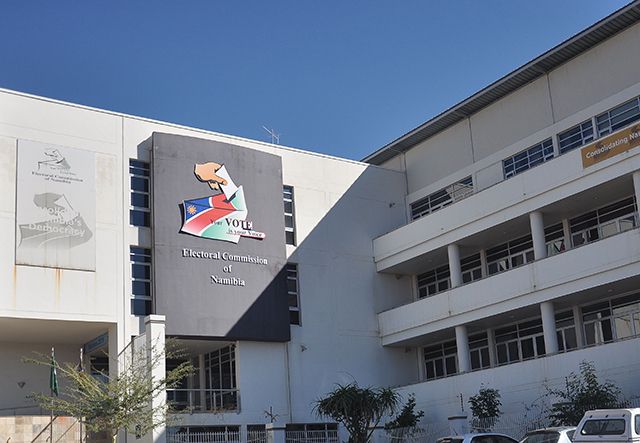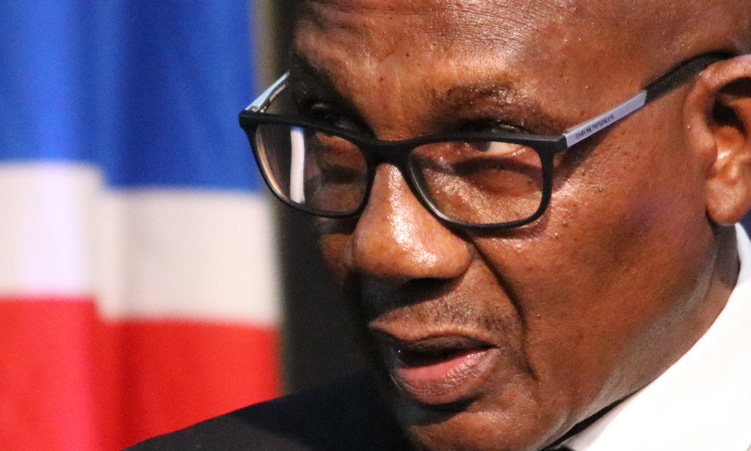THE decision by fisheries minister Bernard Esau to change the requirements of who should benefit from state allocated fishing quotas has attracted mixed reactions, with Namibia’s biggest fishing association saying it was not consulted on the matter.
Esau announced on Tuesday that the newly approved rules make it compulsory for fishing quota applicants to use their proprietary limited company instead of a close corporation, like was the case in the past.
The announcement has, however, divided opinion among industry players as some believe the latest move will allow the well off to dominate fishing rights.
interviewed several people on their views about Esau’s new rules, which were announced two months before the deadline (31 July 2018) of fishing quota applications.
The quota system allows the fisheries ministry to select a list of companies that can qualify to be fish right holders for seven years.
Cabinet then gives the fisheries ministry the powers to allocate the quotas of fish each rights holder company can harvest each year.
The quotas are worth millions of dollars. knows of a joint venture which made over N$25 million a year.
Esau said at a media briefing at Swakopmund this week that he had decided to make it compulsory for people who are applying for fishing rights to use a proprietary limited company.
This, he said, would address the current practice where vulnerable communities and individuals were used by some section 21 companies, close corporations or trusts to apply for fishing rights.
“These communities or individuals are promised certain shareholding, e.g. 10 or 15% shares in the company. Once these section 21 companies, close corporations or trusts receive fishing rights, they often exclude these vulnerable communities or persons from benefiting in dividends sharing,” the minister stated.
He added that “considering that the legal framework for section 21 companies, close corporations and trusts do not have the obligatory issuance of shareholding certificates, it becomes difficult for such vulnerable communities to prove shareholding ownership and hence enforce dividend sharing”.
Most fishing quota beneficiaries used a close corporation – a company in which a select few individuals usually closely associated with the business have shares – to get quotas.
A fishing company owner who declined to be named said Esau could improve accountability to stop businesspeople who enrich themselves and turn the screws against their partners.
But this could backfire.
“In essence, it sounds like they want to do away with proxies, but proxies are allowed in law, and can be used in both close corporations and proprietary limited [companies]. Their stance should call a spade a spade, and say no proxies will be allowed,” a current fishing quota beneficiary told yesterday.
The person said close corporation ownerships are more difficult to change because only a person can own them, as opposed to proprietary limited companies that can be held by a person, trusts, close corporations and other proprietary limited companies.
The Confederation of Namibian Fishing Associations is one of the most powerful lobby groups in the country, but it appears it was not consulted regarding Esau’s proposed new rules.
The association’s chairperson, Matti Amukwa, told yesterday that the ministry did not consult them about demanding that applicants own proprietary limited companies to qualify for fishing rights.
He said it is unfortunate that Esau had changed the rules, but the association believes that requiring fishing rights applicants to use proprietary limited companies will create order, and avoid giving special treatment to some companies which do not produce financial reports.
Amukwa said he does not support the trend in the sector where minority owners are bullied when it is time to share profits.
Close corporations that received fishing rights in 2012 would be told to transform their entities into proprietary limited companies, he added.
According to him, the ministry is going to issue quotas from the reserves to continuing businesses until the new rights are allocated by December 2018.
Esau told yesterday that he wants to plug the loopholes used by close corporations, and that he did not need to consult the Confederation of Namibian Fishing Associations on that decision.
The minister said he had received a lot of complaints of companies changing ownership without the permission of the minister.
The minister admitted that he knows that people are concerned about his decision to exclusively give fishing rights to proprietary limited companies, but insisted that those who want to benefit from the fishing sector should risk it and form proprietary limited companies.
“There are people who think we want to exclude them. That is not the case. You should be able to have at least a vehicle registered under the company,” he said, adding that “most people think we are dishing out quotas just like that”.
He said people who feel cheated should talk to the media because the ministry follows up media reports.
Stay informed with The Namibian – your source for credible journalism. Get in-depth reporting and opinions for
only N$85 a month. Invest in journalism, invest in democracy –
Subscribe Now!






